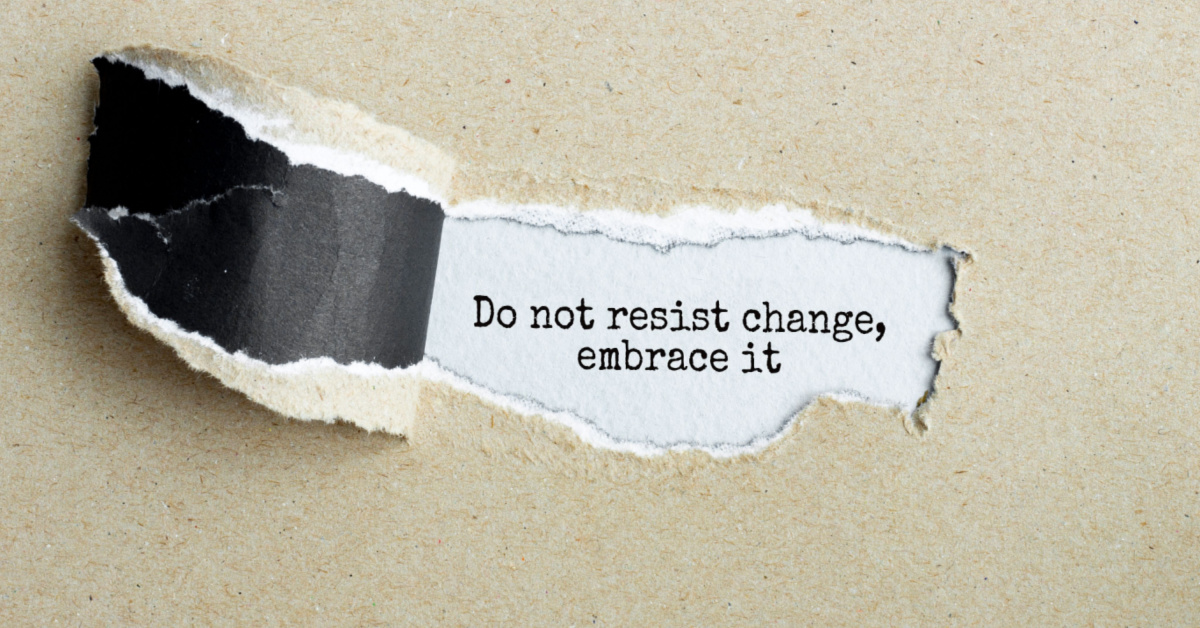 Dr. David Fawcett
Dr. David Fawcett
Change is one of the most persistent yet disruptive aspects of being alive. Change can create unpleasant feelings such as alienation, confusion, frustration, and even acute distress for addicts.
While change is difficult and unpredictable, it is also inevitable. Martha Beck’s book Finding Your Own North Star: Claiming the Life You Were Meant to Live identifies three types of circumstances from which change derives.
- Shock: This is a change that originates outside ourselves – the death of a loved one, a car accident, or some other unfortunate event.
- Opportunity: This is also a change that comes from outside ourselves, but one we view as positive – a lucky break.
- Transition: This is a change that develops slowly from within, emerging in our consciousness before becoming integrated into our lives.
Beck’s book also identifies ‘change styles’ that may be evident in ourselves or others. While these are lighthearted in terms of how she has named them, they do convey with seriousness the various patterns people adopt in reacting to change.
These patterns are as follows:
- Chaos Commando: This is someone who loves the idea of change but gets easily bored and doesn’t follow through.
- Big Dreamer, Little Doer: This person is a great visualizer, but can’t translate that vision into action.
- Realist, Not Idealist: This is a person who falls in love with another person’s vision and makes that vision real.
- Rock of Gibraltar: This is someone who functions well in predictable settings but can’t adjust to new situations.
Each of these styles falls short in terms of helping us adapt to change in healthy ways. This highlights the need for a framework of steps we can take to fully understand and effectively deal with the inevitable transitions we encounter in our lives.
No matter how change appears in your life and what your change style is, it is useful to have some general steps to guide you through the progression from shock to healthy action.
Go Back to Square One
One of the first reactions to any change event is the feeling that everything has unraveled. We grieve and feel as if what we have always known is suddenly turned upside down. Out of the chaos of this initial reaction is an opportunity to reassess aspects of our lives such as a life situation, unresolved issues, or other specific needs such as growing our social support network. It is also an opportunity to reframe our new circumstances in a different light, one more informed by recovery than fear.
Consider The Possibilities
When the initial shock of change has begun to lessen, it’s important to consider its impact, including new opportunities that may arise. This is a time for paying attention, for mindfulness, for visualizing what might be, and for nurturing our inner vision. It’s useful to spend some quiet time alone with our thoughts and our heart trying to discern the correct path. During these moments we should reflect on thoughts like, “Wouldn’t it be nice if…” and “I would love to….” These thoughts help open our minds to possibilities we might not have considered until this change.
A type of psychotherapy called Solution Focused Therapy utilizes the following “miracle question” to help clients move beyond self-imposed limitations. This helps them understand how their life might look with different assumptions and beliefs.
Suppose tonight, while you slept, a miracle occurred. When you wake up tomorrow, what are some of the things you would notice that would indicate your life had suddenly gotten better?
It is surprising how often such a simple question can produce profound insights, helping us jump past barriers which had limited our vision.
Address the Nuts and Bolts
Once we have addressed any feelings about the change itself and have started to visualize how it might represent an opportunity, the time comes to put our plans into action. This requires flexibility, persistence, and resilience. It is helpful to get input from trusted people because, as addicts, we can sometimes impulsively veer off in what may be a false direction. Such feedback can also help us anticipate some of the pitfalls and help us creatively devise solutions for moving past barriers that might once have held us back.
Engage in Maintenance and Monitoring
The final step calls for maintaining and monitoring the changes that we have implemented as a result of a catalytic event. As with other stages in this framework, this requires a level of adaptation and a willingness to make ongoing adjustments to our plans as those plans encounter reality. This step, like the others, requires a level of self-awareness in order to understand our feelings and actions and prevent our drifting off course.
Whether we welcome it or not, change is inevitable. Employing a framework to manage our reactions and seize potential opportunities assures that we embrace this universal aspect of being alive.
* * * * * * * * * *
If you or someone you care about is struggling with sexual addiction, the next right step might be Seeking Integrity’s low-cost online workgroup for male sex addicts. Our next six-week session starts January 4, 2023; click here for more information.
